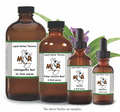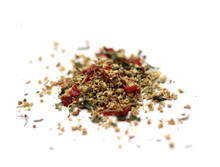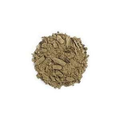 Loading... Please wait...
Loading... Please wait...- Home
- Herbal Teas
- Medicinal Remedy Teas
- Sinus Congestion Herbal Tea
Sinus Congestion Herbal Tea
Product Description
Sinus Congestion Herbal Tea
Herbal tea is a commonly suggested natural home remedy for ailments like sinus congestion and sore throats. This type of remedy can improve the symptoms associated with sinus congestion but there is minimal evidence that suggests it can actually cure the underlying cause of the discomfort. Consult a healthcare professional before using any herbal remedy. Some herbs used in teas can interact with other medications or supplements.
Sinus Congestion
Sinus congestion causes a stuffy sensation in the nose and surrounding sinus cavities. Congestion isn't actually due to a build-up of mucus in the nasal passages, but instead occurs when the lining of the nose becomes inflamed and swollen. Mucus production can worsen the effects of the swollen nasal passages. Common causes of nasal congestion include a cold, sinus infection, allergies and the flu.
Function of Herbal Tea
Making herbal tea and drinking it can actually improve sinus congestion in a number of ways. The boiling water used to make the tea emits steam, which can be inhaled to reduce nasal congestion, states the University of Maryland Medical Center. Sipping the tea causes the individual to inhale the vapors given off by the herbs, which may soothe irritated nasal passages. Drinking warm fluids can thin mucus and improve nasal drainage as well.
Types
Herbal teas come in a wide variety. Some of the more commonly recommended herbs for nasal congestion include eucalyptus, peppermint, sage, blackberry and chamomile, according to the University of Maryland Medical Center. Other herbs, such as marshmallow or licorice root, can be steeped in hot water and sipped but only under the advice of a qualified health care professional because an overdose or drug interaction could cause adverse effects.
Considerations
Adding certain ingredients to the herbal tea may make it more pleasant to drink and may improve the tea's efficacy in treating the symptoms associated with sinus congestion. Honey is a natural cough suppressant, and can be added to herbal teas to sweeten them. Fresh lemon or lemon juice added to the tea can, due to its acidity, thin thick mucus, making it easier to swallow or cough up.
Alternative Uses of the Herbs
Many of the herbs commonly used in teas for congestion can be placed in other mixtures to create a different type of congestion remedy. For example, eucalyptus leaves can be boiled to emit vapors into the air to produce the same calming effect as eucalyptus tea. Some essential oils, including peppermint or eucalyptus, can be placed into a running shower to produce soothing vapors. Many similar herbs are found in chest rubs or ointments that can be placed under the nose to improve breathing constricted by congestion. Consult a healthcare professional for advice on how to use specific forms of the herbs. Placing certain concentrations of essential oils directly on the skin can cause mild to severe irritation. Some herbs cannot be consumed, while others require strict adherence to preparation procedures or dose sizes.
Ingredients: Eucalyptus, peppermint, sage, marshmallow root, mullein leaf and elder flowers.
Suggested Use: Place 1-2 teaspoons into a tea infuser and add boiled water. Allow the tea to steep for 4 minutes. Cool to suitable drinking temperature. Add sweetener of choice Drink and enjoy warm or cold.
Disclaimer - The information presented herein by Mountain Maus’ Remedies is intended for educational purposes only. These statements have not been evaluated by the FDA and are not intended to diagnose, cure, treat or prevent disease. Individual results may vary, and before using any supplements, it is always advisable to consult with your own health care provider.















